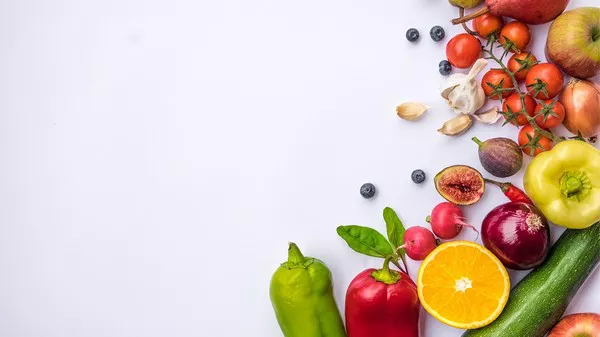In the world of nutrition, protein is often associated with animal-based foods such as meat, poultry, and dairy products. However, the role of protein in a balanced diet is not solely limited to animal sources. Vegetables, often celebrated for their rich vitamin and mineral content, also offer a surprising array of proteins. In this article, we will explore the protein content in vegetables, highlighting their importance in a well-rounded, plant-based diet. Join us as we uncover the protein potential of various vegetables and shed light on their diverse benefits.
The Importance of Protein in Vegetables: A Nutritional Perspective
Protein is an essential macronutrient that plays a crucial role in the growth, repair, and maintenance of body tissues. It is composed of amino acids, which are the building blocks of proteins. While animal-based foods are typically considered complete sources of protein, containing all the essential amino acids, vegetables are often regarded as incomplete sources. However, this perception is not entirely accurate. Vegetables, although lower in protein compared to animal sources, can still contribute significantly to one’s daily protein intake. Moreover, incorporating vegetables into a diet can offer additional health benefits such as fiber, antioxidants, and phytochemicals, making them an indispensable component of a well-rounded nutritional plan.
Protein-Rich Vegetable
Spinach:
Spinach, a leafy green vegetable, is not only renowned for its iron content but also packs a surprising amount of protein. With approximately 2.9 grams of protein per 100 grams, spinach is a valuable addition to a protein-rich vegetarian or vegan diet.
Broccoli:
Broccoli, a cruciferous vegetable known for its cancer-fighting properties, also contains a notable amount of protein. With around 2.8 grams of protein per 100 grams, broccoli is an excellent choice for those seeking a plant-based protein source.
Brussels Sprouts:
Brussels sprouts, often praised for their high fiber content, are also a source of protein. Approximately 3.4 grams of protein can be found in 100 grams of Brussels sprouts, making them a nutritious addition to any protein-focused meal plan.
Peas:
Peas, both green and yellow varieties, are not only a great source of vitamins and minerals but also provide a significant amount of protein. With approximately 5 grams of protein per 100 grams, peas are an excellent choice for vegetarians and vegans looking to meet their protein needs.
Lentils:
Lentils, a legume often used as a meat substitute in vegetarian dishes, are a protein powerhouse. With an impressive 9 grams of protein per 100 grams, lentils offer a substantial protein boost to any plant-based meal.
Chickpeas:
Chickpeas, a versatile legume commonly used in Mediterranean and Middle Eastern cuisine, are not only rich in fiber but also a great source of protein. With approximately 19 grams of protein per 100 grams, chickpeas are a valuable addition to a vegetarian or vegan diet.
Quinoa:
Quinoa, often mistaken for a grain, is actually a seed that is packed with protein. With around 14 grams of protein per 100 grams, quinoa is considered a complete protein, containing all the essential amino acids. This makes it an ideal choice for individuals following a vegetarian or vegan diet.
Edamame:
Edamame, young soybeans often served as a snack or appetizer, are a fantastic source of plant-based protein. With approximately 11 grams of protein per 100 grams, edamame offers a substantial protein content, along with other beneficial nutrients such as fiber and antioxidants.
Protein Quality in Vegetables
While vegetables may be considered incomplete protein sources due to their lower concentrations of certain essential amino acids, combining different plant-based protein sources can help create a complete amino acid profile. By consuming a variety of vegetables throughout the day, individuals can ensure they obtain all the essential amino acids necessary for optimal health. Combining legumes with grains, such as lentils with rice or chickpeas with quinoa, can help create a complementary amino acid profile. Additionally, incorporating seeds and nuts into meals and snacks can further enhance the protein quality and overall nutritional value of a plant-based diet.
Maximizing Protein Absorption
In addition to considering the protein content in vegetables, it is essential to maximize nutrient absorption to ensure optimal utilization by the body. Some vegetables contain components, such as anti-nutrients, that can inhibit the absorption of certain nutrients, including protein. However, there are strategies to enhance nutrient bioavailability and ensure efficient protein absorption.
One effective method is through food processing techniques such as cooking, fermenting, or sprouting. These processes can help break down anti-nutrients, making the protein and other nutrients more accessible to the body.Additionally, pairing vegetables with vitamin C-rich foods can enhance iron absorption, as iron is another vital nutrient often found in plant-based protein sources. For example, combining spinach or broccoli with citrus fruits or bell peppers can help optimize the absorption of iron from these vegetables.
Furthermore, including a source of healthy fats, such as avocado or olive oil, in vegetable-based meals can also aid in the absorption of fat-soluble vitamins and certain phytochemicals. These fats act as carriers, facilitating the absorption of these nutrients by the body.
Protein and Vegetables
Incorporating protein-rich vegetables into one’s diet not only contributes to meeting daily protein requirements but also offers a range of health benefits. Vegetables are typically low in calories and high in fiber, making them an excellent choice for weight management and promoting satiety. The fiber content in vegetables also supports digestive health and can help reduce the risk of chronic diseases such as heart disease and type 2 diabetes.
Moreover, by relying on vegetables as a source of protein, individuals can reduce their environmental footprint. Animal agriculture is a significant contributor to greenhouse gas emissions and land degradation. Choosing plant-based protein sources, such as vegetables, helps conserve natural resources, reduce water usage, and mitigate the environmental impact of food production.
Conclusion
Protein is a crucial macronutrient necessary for overall health and well-being. While animal-based foods are often associated with protein, vegetables offer a surprising array of protein content. Spinach, broccoli, Brussels sprouts, peas, lentils, chickpeas, quinoa, and edamame are just a few examples of protein-rich vegetables that can be incorporated into a balanced diet.
While vegetables may be considered incomplete sources of protein, combining different plant-based protein sources and incorporating complementary foods can help create a complete amino acid profile. Additionally, maximizing nutrient bioavailability through cooking, pairing with vitamin C-rich foods, and including sources of healthy fats can enhance protein absorption and overall nutrient utilization.
[inline_related_posts title=”You Might Be Interested In” title_align=”left” style=”list” number=”6″ align=”none” ids=”3122,3120,3118″ by=”categories” orderby=”rand” order=”DESC” hide_thumb=”no” thumb_right=”no” views=”no” date=”yes” grid_columns=”2″ post_type=”” tax=””]
































